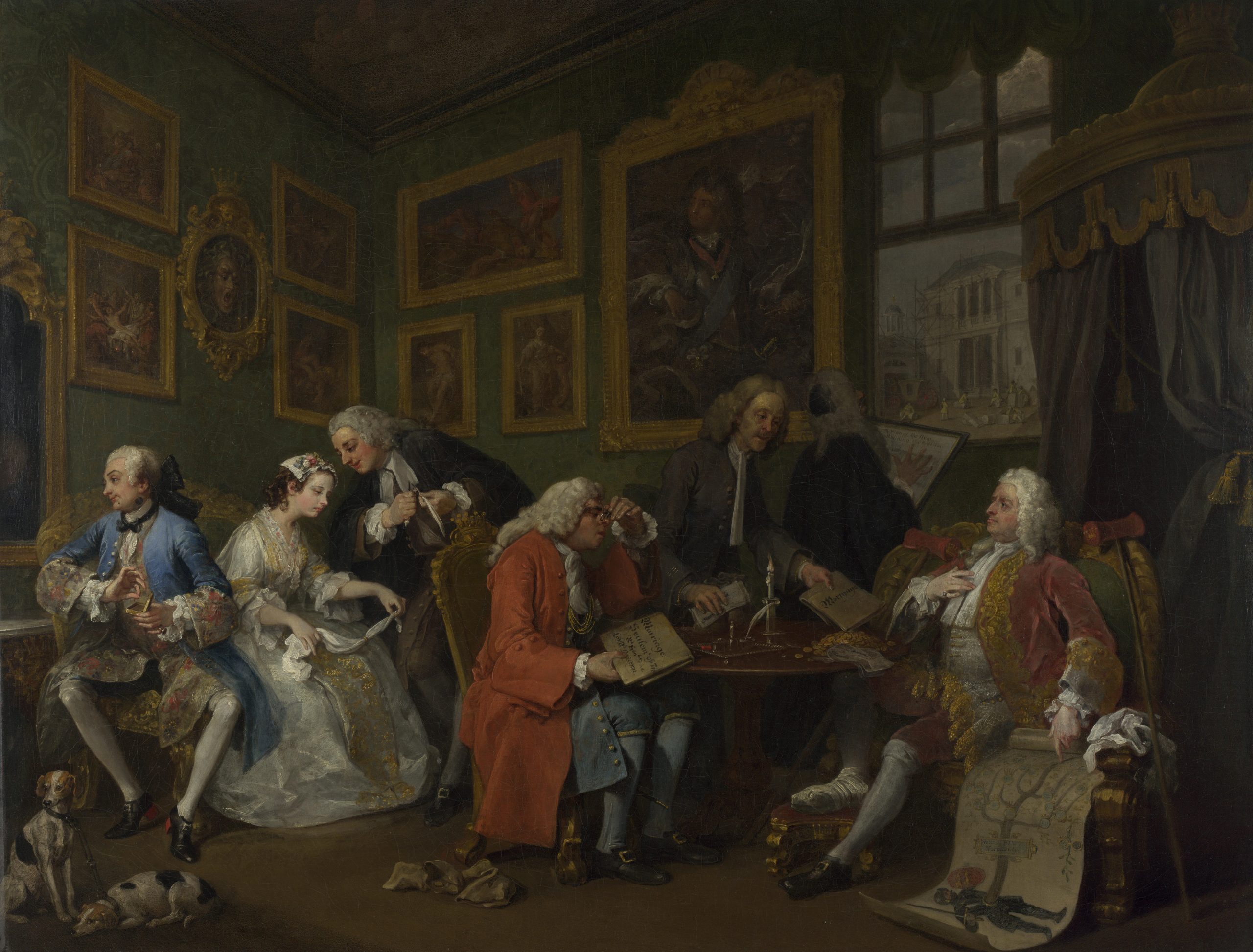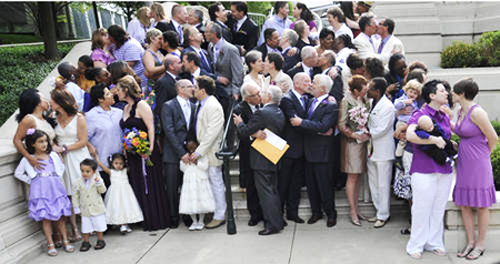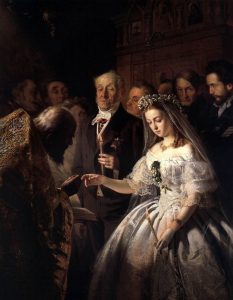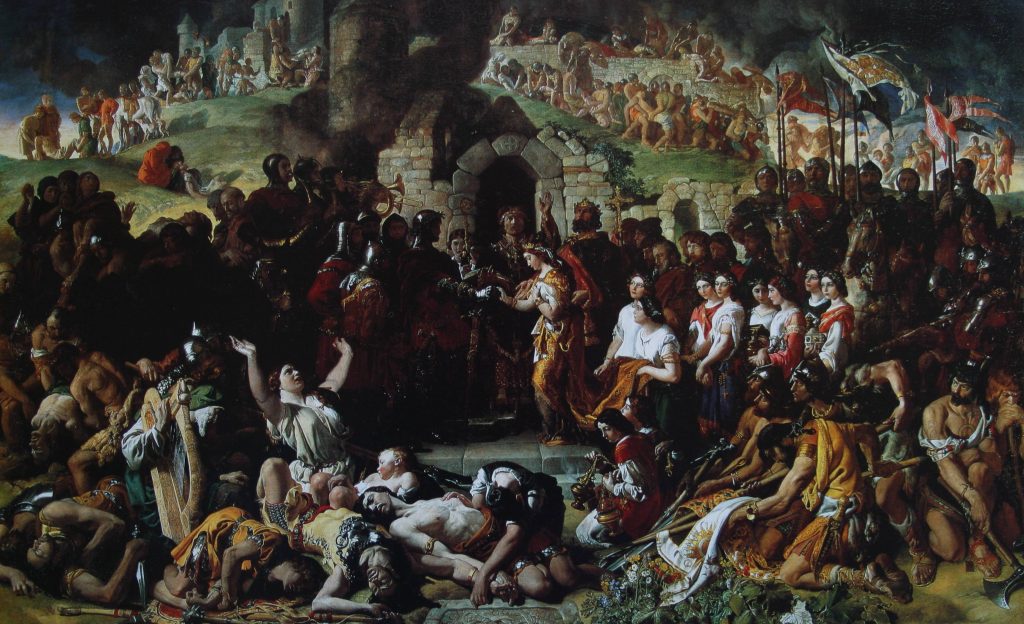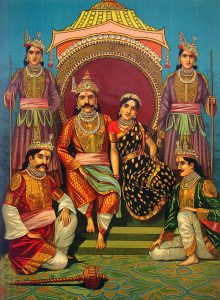Say “They are married” and your listener/reader makes a whole host of assumptions. But are they correct?
Maison Vie New Orleans
An article at Maison Vie New Orleans cites Psychology Today for a list of 7 types of marriage possibilities. I’ve supplied definitions not given in the article.
- Starter Marriage: First marriage, five years or less, no children.
- Companionship Marriage: Based on companionship, both partners have mutual consent and equality.
- Parenting Marriage: Non-romantic, spouses come together to raise happy, healthy children.
- This can also be the case of parents who would otherwise divorce but stay together for the sake of the children.
- Safety Marriage: Marrying a “safety” partner, such as a long-time friend or old flame.
- Living Alone Together Marriage: No standard definition found.
- Each member of a marriage maintaining a separate household, sometimes far apart. (Jezebel)
- Unmarried people living in communal (or roommate) arrangements, for financial and social benefits. (Psychology Today)
- Married people who live together but maintain separate financial and social arrangements. (Center for Growth)
- People who wish to divorce but cannot for social, religious, financial, etc. reasons. (Marriage.com)
- Open Marriage: Spouses in a dyadic marriage agree that each may have extramarital sexual relationships, which are not considered infidelity.
- Covenant Marriage: A legally distinct kind of marriage in three states (Arizona, Arkansas, and Louisiana) requiring pre-marital counseling and accepting more limited grounds for later seeking a divorce.
Psychology Today
On the other hand, an article on Marriage.com lists 25 types of marriages, including the following. In addition to those listed above, the author provides the following variations. This list includes both “legal” and emotional/motivational aspects.
- Love Marriage: The ideal of romance movies and wedding magazines, though love is not necessary to marriage, as delineated throughout this blog.
- Civil and Religious Marriage: when the marriage is recognized by the state, or the recognition is received from a religious body, such as the church, respectively.
- Interfaith Marriage: When people from two different religions decide to get married, it is called an interfaith marriage.
- Common-Law Marriage: when two people have declare they are married and live together but do not have a certificate of registry.
- Cohabitation is not sufficient to be a common-law marriage but it is usually necessary.
- The laws regarding common-law marriages vary not only from country to country but also between states in the US.
- Monogamous Marriage: When the married couple “forsakes all others” and doesn’t get emotionally or sexually involved with anyone else outside the marriage.
- Polyamorous Marriage: When the marriage involves more than two people
- Polygyny, when a man has more than one wife
- Polyandry, when a woman has more than one husband.
- Group Marriage: one or more men are married to one or more women.
- Differs from polygamous or polyandrous marriage primarily in that all members consider themselves in a relationship with all others rather than being “divided” along gender lines.
- Left-Handed Marriage: (Not a term I was familiar with) when two people from unequal social rankings marry.
- It’s also called a Morganatic Marriage, most often in reference to inheritance or succession.
- Secret Marriage: When the marriage is hidden from society, friends, and family.
- Shotgun Marriage: When a couple decides to get married because of an unplanned pregnancy or threat of pregnancy. Sometimes, they marry to save their reputations or embarrassment to their families.
- Inter-Racial Marriage: Also called a mixed marriage, when people from different races marry.
- Same-Sex Marriage: Legal in many parts of the world, though still not as universally socially acceptable as other types of marriage.
- Arranged Marriage: When the family finds a suitable match for an eligible person, based on factors such as race, religion, caste, and other specific criteria they might have.
- Convenience Marriage: When two people get married for reasons that bring convenience to their lives, such as financial security or childcare.
- Zombie Marriage: Both parties are docile and nice to each other in public but behind closed doors, they do not share any sort of a relationship.
- Safety Marriage: When a marriage occurs because something tangible, mostly materialistic, is decided to be given in return. These terms are decided before marriage.
- Open Marriage: When two people who are officially married agree that it’s okay to see others outside the marriage.
- Partnership: Both spouses are equals, probably both work full-time and share household and child-rearing responsibilities equally.
- Independents: Spouses live separate lives alongside each other; they may spend their free time apart; around the house, they tend to work separately in their areas of interest and on their own timetables.
- (See “Living Alone Together”)
- “Traditional” Marriage: One wife who does not work outside the home but takes care of the house and children; one husband who is the breadwinner and has few if any household duties; works only when/as long as both spouses like it that way.
- Companionship: Both spouses want a life-long friend and their relationship is familiar and loving.
Non-Romantic Reasons for Marriage
And there are still other marriages not covered above.
- Advancement: Enhancing social and/or financial standing; the classic/stereotypical case is a man marrying the boss’s daughter.
- Age: It’s “time” to get married; varies by class and culture and time period.
- Alcohol: In Reno or Vegas, it might literally be an inebriated service; more likely an inebriated engagement that turns out to be binding.
- Duty or Obligation: Feeling duty-bound to marry to carry on the family name (more often males) or to provide some sort of support for children or others.
- Escape: Leaving an unsafe, unpleasant, or otherwise intolerable living situation.
- Family Pressure: Could be any want or need that the marriage is expected to fulfill.
- Financial Security: Assuring the basics of food, shelter, health care, etc.
- Lust: Less common than formerly, marriage as a way to get sex.
- Politics: Reinforcing a political or financial arrangement by creating a familial tie through marriage.
- Religious Orders: In the Catholic Church, nuns are referred to as “Brides of Christ.”
- Social Pressure: “All my friends are married!”
Bottom line: Just something to think about. Marriage is many things to many people, not a single entity.
